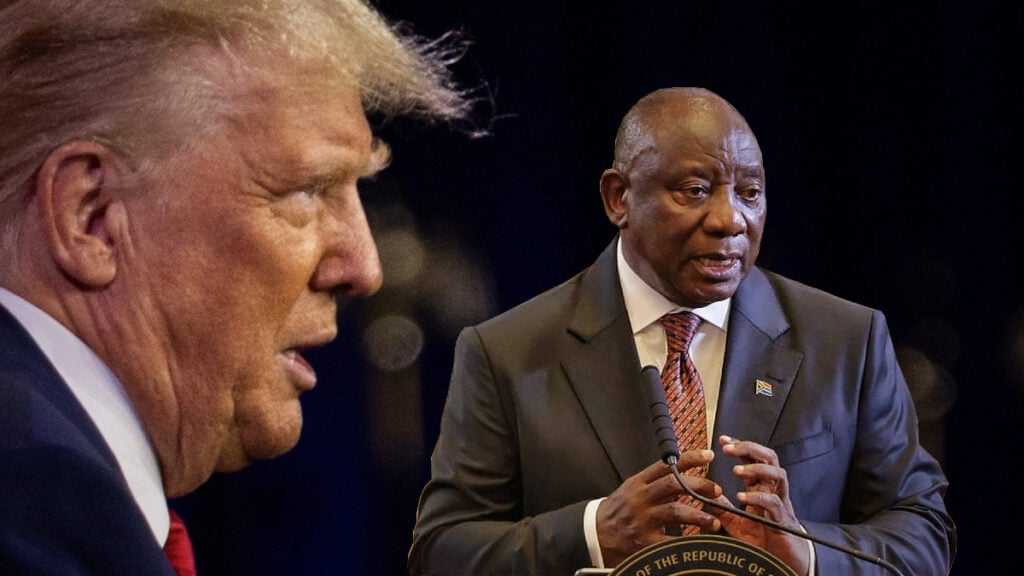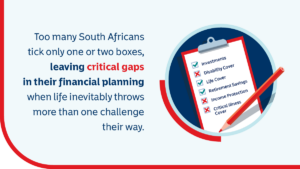South Africa two weeks from disaster

Key industries in South Africa are bracing for the implementation of a 30% tariff on exports to the United States, and many are planning for the worst-case scenario.
US President Donald Trump announced last week that South Africa would be one of many other countries hit with higher tariffs, set to take effect from 1 August 2025—just over two weeks away.
According to Business Leadership South Africa chief executive Busi Mavuso, while the delayed implementation has given the country some room for negotiation, most businesses are planning for the worst.
Sectors such as agriculture, automotive manufacturing, steel, and aluminium will be the hardest hit by the tariffs.
The automotive sector has already been hit by the 25% tariff that has been in effect since April, on top of the universal 10% tariff at the same time. The steel and aluminium sectors could face even higher tariffs, at 50%.
US exports make up 2.2% of South Africa’s GDP. Fortunately, there are some specific exemptions to the tariffs that could soften the blow, including for raw materials like platinum, gold, chrome and coal.
However, Mavuso said there is no doubt that companies with high exposure to the United States will be hit hard.
The business leader said the automotive sector in the Eastern Cape is of particular concern, adding that it is not just the automotive sector, but also all other manufacturers and service providers that support it that are also at risk.
“The US acquired R35 billion in luxury cars and components last year with a third of that consisting of parts, many provided by relatively small businesses,” Mavuso said.
The citrus industry is also bracing for a huge impact, with entire towns at risk of shutting down in the inf wake of the tariffs.
South Africa has become the world’s second largest citrus exporter after Spain, but the biggest in the southern hemisphere, positioning it well for northern hemisphere winter demand.
The US market has consumed around R1.8 billion of citrus exports, supporting about 140,000 jobs across the value chain.
“Add to that wine, beef and other output and large parts of our agricultural sector will be hit,” Mavuso said.
Businesses are out of time

Mavuso said that some businesses will be able to mitigate the impending disaster by finding new markets for their exports, but this will take time.
“In the short term, they will face a shock that will ripple through their supply chains,” she said.
The critical question is whether businesses can survive long enough to pivot to new markets.
“Shifting production capabilities and securing alternative import agreements takes years, not months. In the interim, hundreds of thousands of jobs hang in the balance,” she said.
She likened the situation to what businesses faced during the last big disaster, the Covid pandemic, where companies were forced to shut down during lockdowns.
While the shocks will be temporary, business closures and job losses could be permanent.
The government is running out of time to seal a deal with the US to mitigate the damage. However, economists have noted that the previous ‘worst case scenario’ of having a 10% tariff imposed is now the best hope.
Mavuso said that engagement between South Africa and the United States is welcome and necessary, but urged the government to start making urgent decisions in preparation for the worst.
She said that interventions similar to the Covid loan schemes and Temporary Employer/Employee Relief Scheme (TERS) should be considered again.
The government should also immediately establish a tariff impact fund to support viable companies through the transition period.
At the same time, the state should work with affected industries to identify and develop alternative markets, the business lead said.
“We must prepare for the worst. We cannot be left scrambling for a solution only after all other options have failed,” she said.
“We must get ahead of this challenge. Parallel diplomatic efforts with US counterparts remain important, but we cannot wait for their outcome.”




















